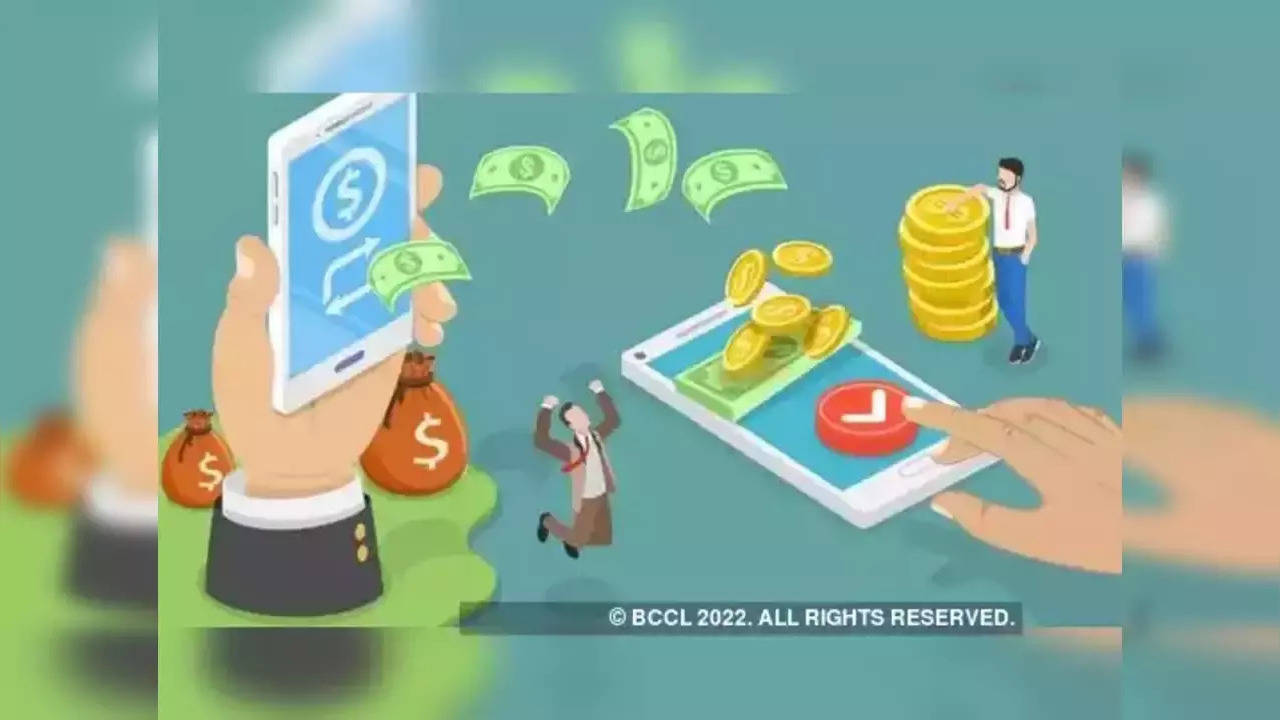How will digital lending guidelines protect borrowers?
The new guidelines by the RBI will significantly help borrowers against cyber financial fraud.

Representational image.
Amid rising cases of fraud and harassment, the Reserve Bank of India recently issued new guidelines on digital lending to safeguard borrowers' interests. Existing customers availing of new loans and new customers getting on board will be the beneficiaries of these guidelines. The deadline for complying with the new guidelines is November 30, 2022.
Let's look at how these guidelines will protect customers.
Cooling-off period available to borrowers
A cooling-off period, also called the look-up period, is a time window given to borrowers for exiting digital loans that they wish to discontinue if the terms and conditions of a loan given to them does not meet their expectations. According to RBI guidelines, a borrower can exit their digital loan by paying the principal and the proportionate interest without attracting a penalty during the cooling-off period. Pre-payment will be allowed if the borrower wishes to continue the loan after the look-up period. It is a customer-centric step that can be extended to offline loans as well.
Direct disbursal of loan amount to borrower's account
The loan will be disbursed directly from the lender's/regulated entity's (RE) account to the end beneficiary. The disbursal must not be made to a third-party account under any circumstances. Further, the regulated entities must ensure that the borrower directly executes loan repayment and servicing without the involvement of any third-party pool or pass-through account. These include accounts held by digital lending apps or platforms and lending service providers. This move will help assure borrowers that their EMIs are directly credited to the lender's account.
Upfront disclosure of loan terms and charges
Regulated entities must mandatorily provide a 'Key Fact Statement' or KFS to the borrower before executing the loan contract for transparency. The KFS must include all the necessary loan-related information, such as the Annual Percentage Rate (APR), recovery mechanism, details of grievance redressal officer, levied interests, and disciplinary charges. During the loan term, the borrower cannot be charged any fee, which the RE has not mentioned in the KFS. Not only will this help customers avoid hidden charges, but it will also clarify what is being paid to the lender.
All loans to be reported to bureaus
Credit bureaus such as CIBIL and Experian have all the information about the loans and credit cards you take. Every time you take a loan or credit card, this is reported to these bureaus. Your credit score is computed basis this information. There have been a few incidents recently where digitally disbursed Buy Now Pay Later loans (BNPLs) were not reported to the bureau. As a result, such loans were not factored in to compute the credit score. For a borrower with a disciplined repayment habit, this would mean losing the benefit of a credit score. The RBI thus ruled that all loans, irrespective of their tenure or nature, if sourced digitally, must be reported to the bureaus.
Lending Service Providers (LSPs) can't charge customers fees
Fees or charges payable to the lending service provider (LSP) by the regulated entity (RE) cannot be charged directly by the LSP to customers. The RE must pay the due fees directly to the LSPs. This has been done to ensure that borrowers transact directly with lenders.
List of lending service providers (LSPs) is a must
All regulated lenders must publish the list of their lending service providers (LSPs) and Digital Lending Apps (DLAs) on their websites. All LSPs and DLAs must provide a link to the websites of the lenders they are associated with, on their websites and mobile apps for customers to access directly.
Recovery agent details to be shared with borrowers
When sanctioning the loan, lenders must provide the details of authorised recovery agents who may approach the borrower to recover the loan amount. Changes in this information must be communicated to the borrowers. This can help borrowers steer clear of fake-recovery agents.
Borrower data privacy is of paramount importance
Regulated entities (lenders) lending digitally must ensure that customer data collected by their LSPs and DLAs is only need-based and done with the prior, explicit consent of the borrowers. Customers must also be given the option to deny consent for the use of specific data and restrict disclosure to third parties on all DLA platforms of registered entities. If required, the customer should have the option to have the app delete or forget the recorded data. The onus is on the lenders to ensure that their LSPs or DLAs do not store customers' personal information except basic data such as their name, contact details and address.
The new guidelines by the central bank will significantly help borrowers against cyber financial frauds and effectively rule out any wrongdoings with them as long as they deal with regulated entities.
(Disclaimer: The opinions expressed in this column are that of the writer. The facts and opinions expressed here do not reflect the views of www.timesnownews.com.)
Trending:
End of Article
Subscribe to our daily Newsletter!





Related News





'Surat To Seoul, Patna To Paris': IndiGo CEO After Airline Orders 30 Long-Range Airbus

Dividend Stock: Google parent Alphabet Declares Dividend, Company Reclaims Spot in $2 Trillion Valuation Club

Tech Mahindra Leads Sensex Pack, Shares Jump Over 7%: What's Behind the Bull Rally? Analysts Set Price Targets

Real Estate Stakeholders Bullish on Dwarka Expressway, Other Realty Hotspots in Delhi NCR Amid Renewed Vigour in Sales

India's Forex Reserves Dropped To Six-Week Low; Now Stands At $640.3 Billion









